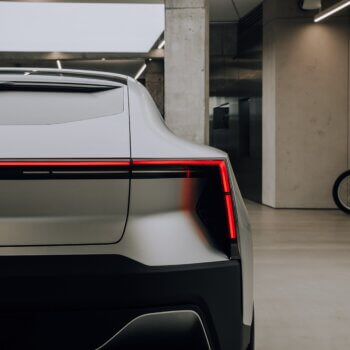Tesla’s production figures and vehicle shipments for the third quarter of 2021 make it the only manufacturer that, in the midst of the global chip crisis that has caused more than $210 billion in losses and the closure of numerous factories around the world, has increased profits and beat analysts’ forecasts, surpassing its all-time record.
What makes a manufacturer capable of topping its production targetswhile the rest of its industry collapses because it lacks chips for its vehicles? Because Tesla is not like traditional automakers.
Let’s start at the beginning: the chip crisis stems from a series of problems that have led to large global chipmakers like TSMC, inundated with orders, being forced to prioritize their production lines. How do you prioritize chip manufacturing? As in any business: by first handling orders that represent a higher margin.
And this is where the big differences arise: traditional automakers continue to use chips based on aging technology, since their performance is sufficient for their requirements and they lack the limitations that exist, for example, in consumer electronics, where any increase in performance, reduction in weight or consumption is quickly exploited in such a highly competitive market. For traditional automakers, which account for between 8% and 10% of chip demand, chips are not a high priority, and instead they rely on technologies that manufacturers today consider legacy, completely outdated.
In fact, TSMC itself, a leader in chip manufacturing, is considering setting up a new factory to supply the automotive industry, which demands chips that are no longer even manufactured as they are today. Recovery from the chip crisis for automakers, therefore, depends on decisions by companies such as TSMC and Samsung, which in the midst of a global shortage prefer to use their manufacturing capacity to sell modern, high-margin chips to consumer electronics companies, rather than ones now obsolete and represent, despite their high volume, a low profit margin.
The exception to that picture in the automotive industry is Tesla. The company has nothing to do with traditional automakers: its chips are fundamental to the point of not only designing them itself like Apple, Amazon, Facebook or Baidu do, but even being able to rewrite its software to adapt it to the availability of chips in the industry. No matter how hard you look, there’s no other automotive industry that works on this basis. This technological supremacy sets Tesla so far apart from the legacy automakers that to all intents and purposes, it has no competitors.
While the legacy automakers choose a particular chip and stick with it for years because it is does the job, Tesla squeezes performance out of chipsand optimizes their performance in a way its competitors can’t comprehend, more akin to the consumer electronics market. Tesla isn’t a car company, it’s a technology company.
Seen in this light, Tesla’s numbers are easy to explain: chipmakers would rather supply the most modern chips they can make, using state-of-the-art technology and at a significantly higher margin, than spend time on their production lines to make the old stuff that traditional car companies demand from them.
When you try to explain to executives of a traditional car company that Tesla is investing substantial resources in manufacturing its own chips to train its own algorithms with the data it collects from its fleet at data centers, it’s clear they have no idea what you are talking about; it’s as if they came from a completely different industry, if not from a completely different planet. And that’s because they do: while some are still determined to continue squeezing what they can from the century-old internal combustion engine and see chips as a necessary evil to offer “extras” in their vehicles, Tesla is leading the electric revolution, and its vehicles are essentially computers on wheels using the most advanced chips available, in many cases even designed by Tesla itself.
When you see a car brand forced to close factories and send its workers home because it lacks the chips it needs, you know that the chips it uses are so old-fashioned that when the going gets tough, chip factories are not interested in producing and supplying them. That’s what sets Tesla apart from the competition.





























